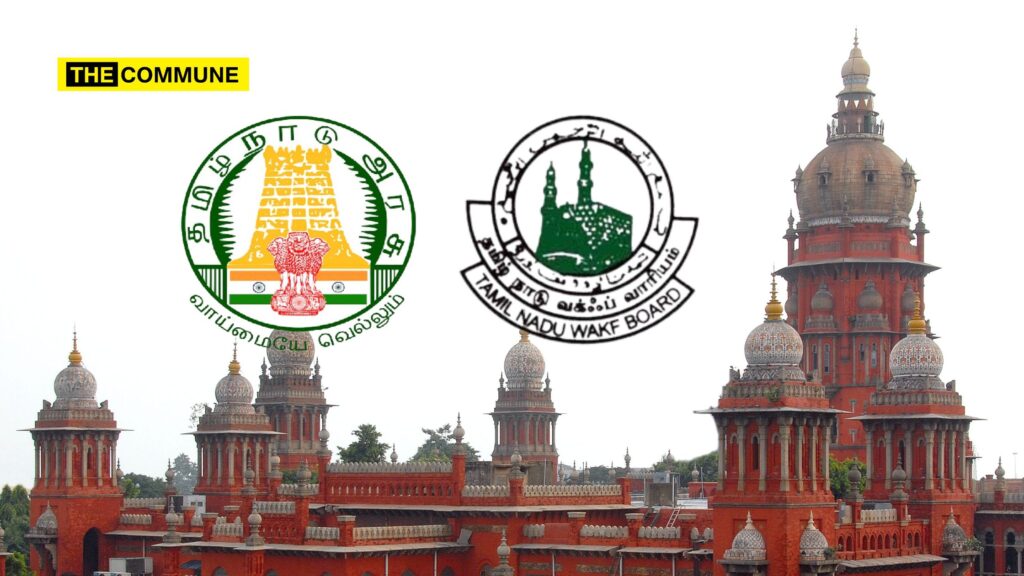The Madras High Court has ruled against a 2010 amendment that brought Waqf properties under the jurisdiction of the Tamil Nadu Public Premises (Eviction of Unauthorised Occupants) Act of 1976, thereby giving authority to the Chief Executive Officer (CEO) of the Tamil Nadu Waqf Board to order the eviction of encroachers.
Chief Justice Sanjay V Gangapurwala and Justice D Bharatha Chakravarthy presiding the bench found the 2010 amendment by the State legislature to be incompatible with the Waqf Act of 1995, a Central law. They determined that encroachers on waqf properties could only be evicted through waqf tribunals established under a 2013 amendment to the Central law.
The judges supported arguments by a group of lawyers, led by Senior Counsel V Raghavachari and SR Raghunathan, that the 2010 amendment exceeded state jurisdiction and required Presidential approval due to its conflict with Union legislation. Rejecting the State government’s argument for the coexistence of state and Central laws, the bench ruled that only the procedures outlined in the Union law should be followed for eviction, as stated in the 2013 amendment.
In their ruling, Justice Chakravarthy highlighted the inadequacy of the original provisions of the Waqf Act, 1995 in addressing encroachments on Waqf properties. He noted the recommendation of the Sachar Committee to extend the Public Premises (Eviction of Unauthorised Occupants) Act, 1971 to waqf properties for the benefit of the public. While Tamil Nadu implemented the 2010 amendment based on this recommendation, many other states did not. Consequently, the Parliament amended the Waqf Act in 2013 to ensure uniformity in eviction procedures nationwide. The bench noted that this amendment superseded the 2010 state amendment.
In concluding their verdict, the bench emphasized, “The Parliamentary law intends to secure the protection of waqf properties which requires uniformity of law and consistency of its application all over the country. The Central Act is thus made as an exhaustive code on the subject. Therefore, the State enactment is repugnant to the Waqf Act of 1995 as amended in the year 2013.”
The #MadrasHC has declared unconstitutional, a 2010 amendment which brought waqf properties under the ambit of the Tamil Nadu Public Premises (Eviction of Unauthorised Occupants) Act of 1976, reports @imranhindu https://t.co/2N6e2I1cvg
— The Hindu – Chennai (@THChennai) April 25, 2024
(with inputs from The Hindu)
Subscribe to our channels on Telegram, WhatsApp, and Instagram and get the best stories of the day delivered to you personally.

